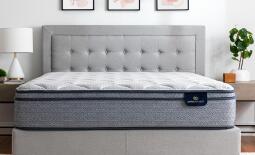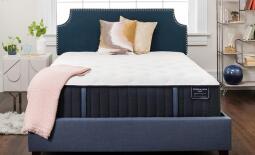Around here, napping is basically a prerequisite. We love taking naps, and we know most of you do too. But who knew it was such a divisive topic? Some experts swear by napping, while others are adamantly against it. The research shows that the effects of taking daytime naps can go either way. According to a recent work-from-home survey, 59% of people admitted to taking a nap while on the clock. A short nap once a day can be beneficial, but falling asleep at 8 p.m. and waking up four hours later, bright eyed and bushy tailed, is far from good. Believe it or not, napping isn’t just for lazy days at home. It has proven benefits that can help you be more productive while you’re working from home.
If you’re one of the 59% of people who naps during the workday (don’t worry—we won’t tell), here are three ways it can help you work from home. It’s all the justification you need.
1. Napping sharpens your mind
Napping has been scientifically proven to heighten cognitive function. Your memory, creativity and even learning capability can improve after a short daytime nap. Considering the information overload that sometimes accompanies working from home, taking a quick nap after a big meeting or a difficult project can help you retain some of the information you learned.
2. Napping can improve your physical health
After sitting at that makeshift work-from-home desk all morning, your back deserves an afternoon nap.
We already know that napping can help the brain stay sharp, but a daytime nap can have physical benefits too. The body repairs itself while you sleep, even during a quick daytime nap. So whether you’ve been sitting or standing while working, give your body a short break from being in the same position all day. It can be a great boost to get you through the rest of the workday.
3. Napping has holistic benefits
Napping can improve your overall quality of life, especially if you’re a self-professed night owl. Sleep deprivation stimulates hunger hormones, which can lead to mindless snacking throughout the workday (and feeling not so great in the afternoon). A word of caution: naps are great, but only to a certain extent. They shouldn’t be a replacement for a healthy and consistent nightly sleep schedule; just a supplement on the days you need some extra rest.
Naps get a bad rap, but there are so many benefits to napping “the right way.” Try to keep your snoozing to a power nap—30 or 45 minutes at most—and confine your naps to earlier in the day so you don’t end up losing sleep at night. And if you’re “just not a nap person,” that’s okay too. Just make sure you’re getting a good night’s sleep.







